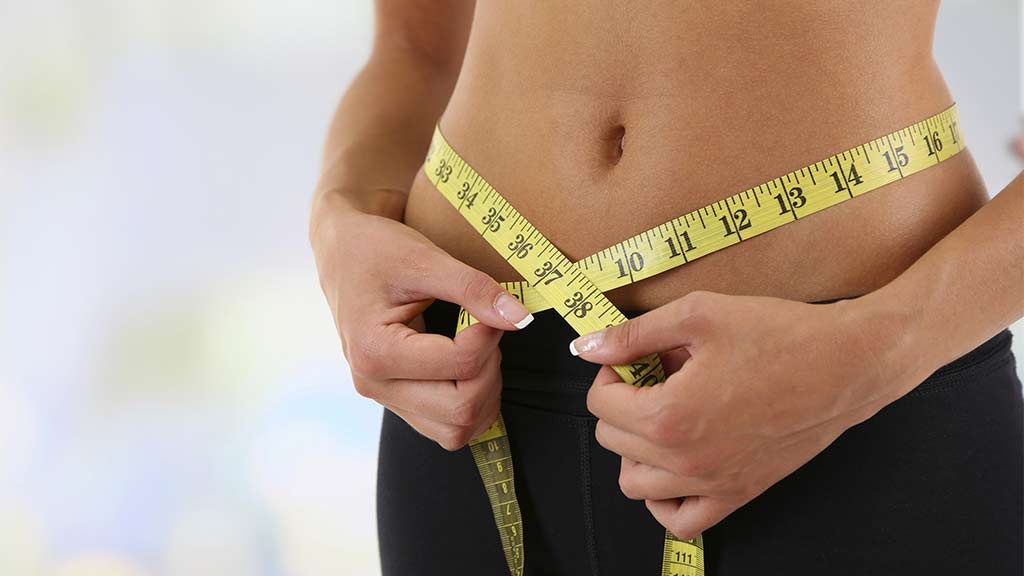Are you frustrated because of your inability to shed those extra pounds, no matter how hard you try? If it is so, worry not; many women experience the same challenge when trying to reach their weight goals. But hormone therapy could be your key to reaching them successfully. Yes, it is the best female weight loss treatment.
Weight management requires more than simply monitoring what you eat and exercising. Hormonal balance plays a crucial part in this, and here, we’ll discuss its intricate connection to weight issues as we reveal its link with hormone imbalances, those caused by irregular periods and menstruation cycles, and other factors. By the end of the guide, you will understand how hormone optimization could make all the difference in weight control efforts in women.
Not only that, we will also offer actionable tips to support you on your path toward living a healthier, happier lifestyle.
Understanding Hormonal Balance
What Are Hormones?
Hormones act like chemical messengers for your body, working behind the scenes to maintain balance. Hormones regulate numerous functions, including metabolism, mood, growth, and reproductive processes – acting like chemical emissaries that keep everything balanced.
What Is Hormonal Imbalance?
When chemical messengers of our bodies become discordant, it can result in numerous health concerns, weight gain often being one such consequence. Hormone imbalance can occur for various reasons, including genetics, lifestyle choices or medical conditions underlying them.
Common Hormonal Issues
Women often grapple with specific hormonal challenges related to weight:
PCOS (Polycystic Ovary Syndrome):
PCOS, commonly found among women of reproductive age, is an uncommon hormonal condition characterized by fluid-filled sacs known as cysts that form on ovaries and that produce small cysts of fluid. Though cysts themselves might not cause harm directly, they can create hormonal imbalances, specifically an excess of androgens (male hormones like testosterone). This hormonal imbalance often manifests itself with irregular menstruation cycles, fertility problems and physical features like facial or body hair growth- all these are associated with PCOS.
Insulin resistance is one of the greatest challenges that is associated with PCOS when it comes to weight management for women. Actually this hormone is produced by your body whose function is to control your blood sugar, but when cells become resistant, excess insulin production occurs and leads to fat storage around abdominal regions, which often makes reducing weight even harder with PCOS. Furthermore, women may find they gain weight more quickly around midsection areas than usual.

Thyroid Disorders
Your thyroid plays an essential role in controlling your metabolism. What’s that? Well it’s the rate at which food converts into energy for use by your body. When your thyroid doesn’t function as it should, however, this can have serious ramifications, one such disorder being hypothyroidism. With insufficient thyroid hormone production from its gland comes reduced metabolism, which makes calorie burning much slower, leading to weight gain rather than loss and making weight management harder overall. A slow metabolic rate can bring lots of health health issues in women along with weight loss!
Menopause
Menopause is an expected phase in life for females aged 40-50 and marks significant hormonal fluctuations in their bodies, most noticeably seen through changes to estrogen levels that alter body composition in various ways. Many women also notice changes to weight and body shape as these hormonal shifts take effect. Some women even experience changes to abdominal fat storage due to reduced estrogen.
The Connection Between Hormones and Weight
How Hormones Affect Metabolism
Metabolism is your body’s engine for burning calories and producing energy, fuelled by hormones like insulin, cortisol and thyroid. They all play a significant role in how quickly calories are burned off; consequently affecting weight management efforts as a whole.
Hormonal Changes in Life
Throughout a woman’s life, various stages come with significant hormonal fluctuations that can impact weight:
Puberty
Puberty marks an exciting period as you transition from childhood to adulthood, when your body undergoes immense change as hormone levels peak – specifically estrogen and progesterone production among girls. These hormones play an integral part in developing secondary sexual characteristics as you prepare for possible reproductive capabilities later on, including increased fat storage around hips and breasts for potential pregnancy in future years. Although natural fat storage plays a crucial role for future pregnancy plans, it also leads to weight fluctuations among young women during puberty.
Pregnancy
Pregnancy is an extraordinary time in a woman’s life; during it she will experience significant weight gain that is both intentional and essential to supporting both herself and the growing baby. Hormonal changes will increase drastically throughout gestation. These changes are necessary for the well-being of both mother and baby; however, they also alter a woman’s body in significant ways. Hormones like human chorionic gonadotropin (hCG), progesterone, and estrogen play key roles in supporting gestation. Pregnancy changes the body in various ways, including an increase in fat storage to provide fuel for both you and the growing baby. Weight gain during gestation should not be considered evidence of poor health status; rather, it’s simply part of pregnancy’s natural cycle and expected results.
Hormonal Imbalance and Weight Gain
Hormonal imbalance can disturb the delicate equilibrium of metabolic hormones. For instance, insulin sensitivity which contributes to greater fat storage around abdominal areas and changes your appetite control mechanisms, making weight management even harder than before. Furthermore, fluctuations in sexual hormones may trigger cravings, which affect the body’s capacity for regulation, making maintaining a healthy weight difficult to do without help.

Hormonal Replacement Therapy
What is HRT?
Hormonal Replacement Therapy (HRT) is an approach used by medical practitioners that supplements or replaces hormones no longer produced in sufficient amounts by the body, in an attempt to restore hormonal equilibrium and alleviate symptoms associated with imbalanced hormone production. HRT can be an effective weight loss treatment for females. It aims to restore this equilibrium as well as alleviate associated symptoms.
Types of HRT for Women
There are several types of hormone optimization for women that help in cutting extra fats:
Estrogen Replacement
Estrogen replacement therapy (ERT) is often recommended for women experiencing menopausal symptoms. Menopause brings with it a significant drop in estrogen levels and, as a result, uncomfortable menopausal signs like hot flashes, night sweats, as well as mood swings may arise. To alleviate such discomforts, estrogen replacement therapy can replenish the body’s diminishing estrogen reserves to significantly improve the quality of life for those going through menopause, making their transition smoother as well as more manageable. Furthermore, it also has important effects on body composition by helping prevent some changes induced by menopause, such as sudden weight gain.
Progesterone Replacement
Progesterone can often be combined with estrogen as part of HRT for women who have not undergone hysterectomy. Progesterone plays a crucial role in protecting the uterine lining. When estrogen supplements are taken alone, they may lead to excessive growth of this layer, increasing the risk of cancer. Progesterone counterbalances this by controlling its growth while working alongside estrogen to maintain hormonal equilibrium – particularly important when managing weight as part of menopausal therapy and can ensure safer as well as more balanced treatment of HRT therapy overall.
Testosterone Replacement
Though testosterone is more often associated with men, women also possess small quantities of the hormone. Like its male counterparts, testosterone plays an integral part in mood, energy levels and sexual desire. Women rely on testosterone for overall well being and energy boost, improving mood. But like other hormones, levels can decline with age. Replacement therapy with testosterone for women may prove useful when they exhibit signs of low testosterone, including fatigue, mood swings, and reduced libido.Among these benefits, HRT helps individuals to perform greater physical activity for weight management purposes. Restoring testosterone levels to appropriate levels has proven particularly effective.
Benefits and Risks of HRT
HRT may provide many benefits, from improved mood and reduced hot flashes, to helping with weight management by restoring hormone balance and potentially contributing to weight management. Before considering hormone treatment for weight loss, it’s wise to consult a healthcare professional as an evaluation may show increased risks such as blood clots or other issues in certain cases.
The Role of Diet in Hormonal Balance
Foods That Help Balance Hormones
Certain foods can help restore balance to hormones:
Fatty Fish: Salmon as well as Mackerel, provide essential omega-3s that reduce inflammation while balancing hormones.
Leafy Greens: Provide essential minerals like magnesium that play an integral part in hormone balance regulation.
Cruciferous Vegetables: Broccoli, cauliflower as well as Brussels sprouts contain compounds that support estrogen balance.
The Importance of a Balanced Diet
An effective diet must provide all essential vitamins and nutrients. Lacking certain essential elements could result in hormonal imbalance, making weight management tougher than it needs to be.
Nutritional Tips for Weight Loss
Reduce Sugar and Processed Foods: These can disrupt insulin levels, contributing to weight gain.
Incorporate Lean Protein: Protein can aid in controlling your appetite as well as enhance muscle growth, aiding in weight loss.
Stay Hydrated: Dehydration can affect hormone production, so it’s indispensable to drink enough water to support your body’s processes.
Exercise and Hormonal Balance

How Exercise Helps
Exercise is key to balancing hormones. It can help lower insulin resistance, alleviate stress, as well as stimulate the production of hormones associated with well-being.
Types of Beneficial Exercises
Strength Training: Building lean muscle can increase your metabolic rate and at the same time, improve insulin sensitivity, making it easier to manage your weight.
Cardiovascular Exercise: Aerobic activities like running or cycling can help burn calories and reduce stress, further contributing to weight management.
Yoga and Mind-Body Practices: These promote relaxation and reduce stress, helping to balance cortisol levels, a hormone linked to weight gain.
Create a Balanced Workout Routine
A balanced exercise routine should include a mix of strength training, cardiovascular activities, and stress-reduction techniques like yoga. Tailoring your workout regimen to your specific goals and body type is essential for optimizing hormonal balance and weight management.
Stress Management and Hormonal Health
Stress and Hormones
Stress is a powerful factor in hormonal balance. When stress levels rise, hormones like cortisol can become imbalanced, impacting your appetite, metabolism, and energy levels.
Strategies for Stress Reduction
To support hormonal health and weight management, it’s crucial to implement stress-reduction strategies:
Physical Activity: Routine physical activity can help alleviate stress as well as promote the release of feel-good hormones.
Mindfulness and Meditation: Apart from above, practices like mindfulness as well as meditation can calm the mind and reduce stress responses, aiding in hormonal balance.
Adequate Sleep: Quality sleep is essential for hormonal health, so take at least seven to eight hours of restful sleep each night.
Hormone optimization for women not only reduces weight but also provides several other health benefits.
Concluding Role Of Hormones In Weight Loss
Hormones play a pivotal role in managing ideal weight. The well-balanced hormone in females can help them attain an attractive body persona that eventually boosts their confidence. Hormone replacement therapy is beneficial for cutting extra pounds along with a balanced diet as well as regular exercise.
Now that you’re equipped with knowledge, we encourage you to take action. If you’re facing challenges in managing your weight as well as hormonal balance, it may be time to seek professional advice. They can assist you in your journey of fitness.
Rejuvenate HRT specializes in hormonal replacement therapy for women. If you’re considering hormone treatment for weight loss or seeking guidance on achieving hormonal balance, we can be your reliable partner on this journey. Reach out to our team of experts for personalized support and guidance. Your path to a healthier, happier you may be just a consultation away. Don’t wait, call us now! Our experts are ready to assist you.












